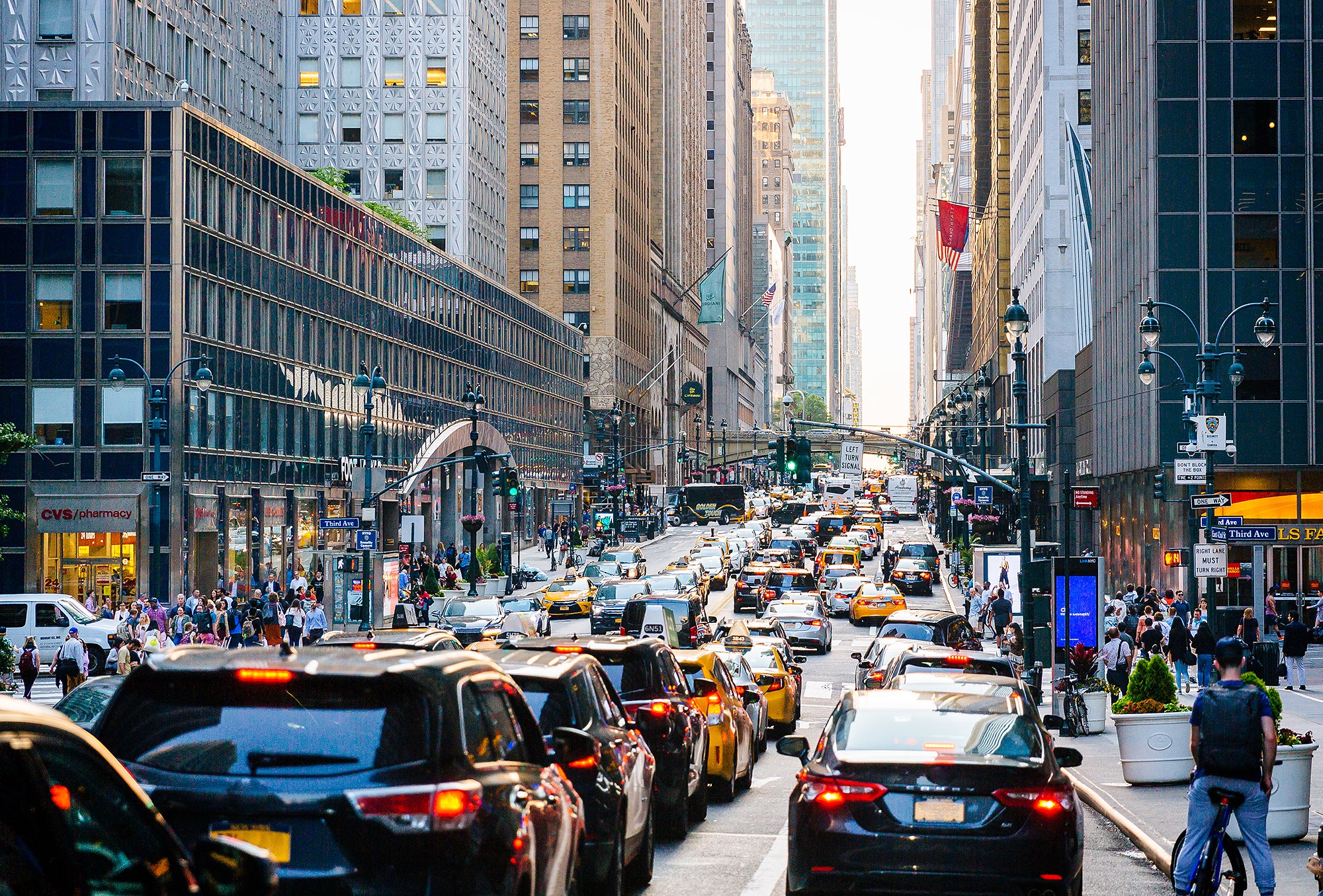Congestion Pricing is a Big Win for Clean Air. We’re Suing Trump to Keep It.
The program is raising millions for public transit improvements and significantly reducing traffic.

The Trump administration is trying to kill New York City’s congestion pricing program, even as the policy reins in traffic and improves air quality for millions of people. Earthjustice is fighting back in court.
After years of advocacy by transit riders, unions, and clean air activists, the pricing plan went into effect in January 2025. It reduces congestion by charging drivers to enter car-clogged Lower Manhattan, using that money to fund public transit projects. The program is widely popular and is already shortening commutes — but the Trump administration has ordered New York officials to end it.
Earthjustice, on behalf of rider groups and grassroots environmental advocates, is suing to stop this illegal power grab. This lawsuit is part of a broader effort to ensure that the U.S. in general and forward-thinking states like New York in particular can continue to make environmental progress no matter who’s in the White House. It is our third suit against the Trump administration in the last three weeks.
For decades, relentless traffic has clogged the streets and New Yorkers’ lungs with polluted air that kills more than a thousand people annually. By attacking the congestion pricing program, the Trump administration is trying to nix the city’s opportunity for cleaner air and safer streets, while also robbing it of critical funding to improve the languishing mass transit system that approximately 5 million people ride every day.
The vast majority (85%) of commuters who work in Manhattan already take public transit, and congestion pricing helps fund necessary upgrades like extending existing subway lines, as well as installing elevators and other accessibility improvements to ensure that even more New Yorkers can take advantage of this cleaner, more sustainable form of transportation.
In its first month, the program has already raised $48.6 million to help finance a slew of major transit repair projects, including expanding subway lines, improving subway station accessibility, and enhancing bus services. There are also early reports that foot traffic and retail sales are up by almost a billion dollars as compared to 2024, before the congestion pricing program was put in place.
The city’s transit system — now more than a century old — is badly in need of these upgrades. Each day, it moves millions of riders across the city, shuttling tourists, residents, and employees everywhere from downtown Manhattan to the outer reaches of the Bronx and Queens. Yet according to Riders Alliance, a membership organization of subway and bus riders in New York City, the subway system is crumbling and built with outdated technology, the city’s buses are some of the slowest in America, and the public transit system writ large is still “shamefully inaccessible” to those with mobility issues.
To make up for the budget shortfall caused by blocking the congestion pricing plan, it’s likely that planned accessibility upgrades would be cancelled, and new fare hikes and additional service cuts would be needed to cover the unplanned costs of running old, unreliable trains and buses. In addition, with so many current and future Metropolitan Transportation Authority (MTA) projects suspended due to lack of funding, 100,000-plus well-paying jobs in New York could also be in jeopardy.
Despite these high stakes, Trump transportation secretary Sean Duffy sent New York’s governor a letter in February saying that the Federal Highway Administration had determined the program was illegal. This agency had previously approved the program after studying it for years, and it never before raised legal objections. Earthjustice is challenging the Trump administration’s arbitrary and capricious actions in court.
“New Yorkers need air we can breathe, a transit system that works for all of us, and a planet that’s safe for our children,” says Earthjustice attorney Dror Ladin, who is leading Earthjustice’s litigation to preserve congestion pricing. He also led an earlier round of litigation challenging delays to the program.
Our clients in the lawsuit against the Trump administration are Riders Alliance and Sierra Club. We will continue fighting for a safe, just, and healthy environment for everyone.
Established in 2008, Earthjustice’s Northeast Office, located in New York City, is at the forefront of issues at the intersection of energy, environmental health, and social justice.